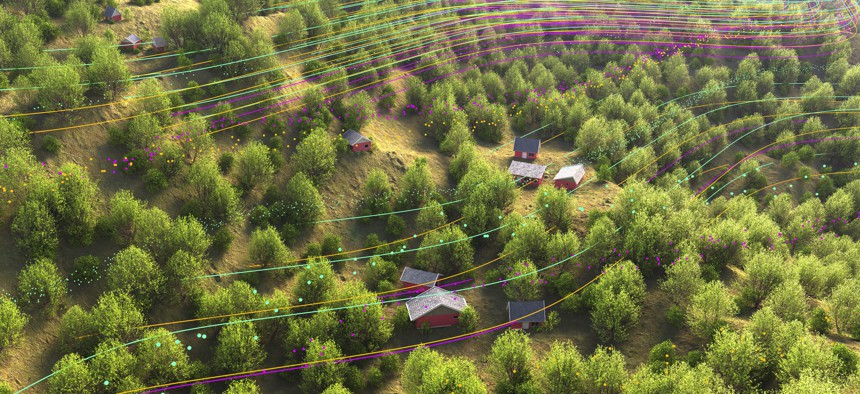Arkansas outlines broadband connection plans

GettyImages/ Huber & Starke
A hybrid fiber-wireless approach will provide the best near-term solution as future-proof fiber-to-the-home connections are built out.
A comprehensive master plan for addressing the digital divide in Arkansas found that 210,000 households are currently considered underserved, meaning their access is slower than 100+ Mbps.
The report was compiled by the Broadband Development Group, which conducted a six-month, statewide study to address increasing availability of broadband service across Arkansas.
Of the 210,000 underserved households, connection costs for 100,000 are being covered by a federal Rural Digital Opportunity Fund grant, BDG found, leaving 110,000 for the state to connect – at an estimated cost of $500 million.
While the need for immediate broadband services to support remote work, distance learning and telemedicine is acute, the state must “weigh the cost of expediency against the cost of meeting broadband connectivity requirements over decades,” the report said. Officials must consider overall deployment costs, along with risk associated with technologies and vendors, and choose the most promising technologies for bridging the broadband gap.
BDG weighed the pros and cons of various connection technologies and concluded that the most promising, future-proof solutions will be fiber to the home (via fiber-optic cables), low-Earth orbit satellite connections and fixed wireless access. The report acknowledged that a hybrid fiber-wireless approach will provide the best near-term solution as fiber-to-the-home connections are built out.
Arkansas has very little broadband infrastructure to leverage. There is no state-owned dark fiber, and the 140 state-owned cell towers would account for only 5% of the sites needed. The report estimates that 10 to 20 times as many towers would be needed to cover the broadband gap fully.
“We now have a roadmap and a detailed plan to fill the remaining gaps of the underserved areas of our state,” Secretary of Commerce Mike Preston said. “We look forward to continuing to partner with Internet Service Providers (ISPs), electric cooperatives, the legislature, and other key stakeholders, taking recommendations from this plan and updating the broadband rules.”
The state anticipates future funding for broadband through the Coronavirus Capital Project Fund, Infrastructure Investment and Jobs Act and a second installment of Arkansas Rescue Plan Act funds this summer. The State Broadband office has awarded $386 million in grants through the Arkansas Rural Connect grant program.
The Arkansas Department of Commerce plans to convene stakeholders next month to discuss the report and seek community feedback.
NEXT STORY: The Rise of the Retro License Plate






